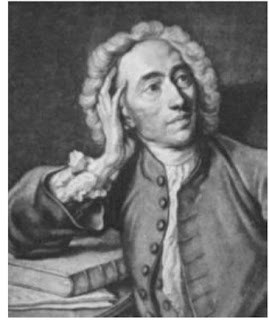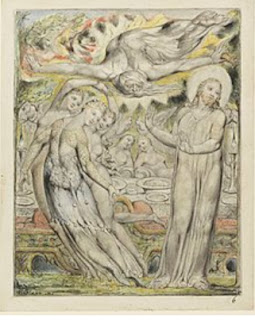Iam Bhavna Sosa, a student of English department of Maharaja Krishnakumarsinhji Bhavnagar University. This blog is the part of my classroom assignment that is given by our Vaidehi ma'am.
1. According to you, who is the protagonist of the play Clarissa or Belinda? Why?
The Rape of the Lock was written by Alexander Pope and first published in 1712,then reworked and published in 1714. The poem is a mock-epic that satires the upper-class in London at the time. The story focuses on the protagonist, Belinda whose lock of hair is cut off at a social gathering. Although trivial to most,Belinda is outraged that her lock of hair has been cut by the Baron.
In the Rape of the Lock , Pope uses Belinda and the Baron to mock two of his acquaintances, Arabella Fermor,and Lord Petre. The poem follows the events of night, leading up to Belinda's "horrific" loss.
According to my point of view, Belinda is the protagonist of the play because Belinda is a vain, upper class woman who is always seen as the center of attention. Her society puts her on a high pedestal, always giving her praise when possible. The Baron steals a curl of Belinda's hair when given the scissors bt Belinda's friend, Clarissa. When The Baron cuts the curl from her head, the typically calm, collective Belinda flies into a horrible rage. Aje asks at once for her hair to be returned to her but when The Baron cannot find the curl, it is said that it traveled up into the stars and is now a constellation for all to admire. It looks as though Pope used this mock-epic work to represent the fascination that society has of the members of the upper class.
Belinda's beauty was admired by all and many were jealous of her. The tension between the people in the upper class is illustrated by these characters and the fight to steal another person's power. Pope compare the trivial events in his poem to the events in epic poems by using satire. The events that occur in this poem show how the society being described has lost all capability of determining which problems are to be treated seriously and which should not.
"Here files of pains extend their shining rows,
puffs, powders, patches, bible's billet -doux."
To wind up we can say that The Rape of the Lock is a mockery of the manners of the tea- cup times of Queen Anne. Here, pope seeks to throw light upon the fickle minded fashionable ladies of the 18th century England depicting Belinda as the representative Protagonist.
2. What is beauty? Write your views about it.
Beauty means inner beauty in human,not a outer beauty in human.
Two parts of Beauty :
1) Inner beauty
2) Outer beauty
Inner beauty is most important
Then, inner beauty makes a person more peaceful. Therefore,it can automatically help in reducing violence in the world. This is one advantage that justifies why inner beauty is important.Emotional connection :
People with inner beauty are well connected to their emotions. They are therefore, better better dicision makers and thinkers.
Confidence:
Finally inner beauty gives you the confidence to face the world and its problems.which is something far greater than the standards that had been set by the society.
Inner Beauty doesn't have an expiry date-
Unlike external beauty that is dependent on your biological appearance inner beauty has the potential to keep getting better with age.
Aesthetic concept of beauty :
Beauty is a property of certain thing. Something is beautiful if it is nice to look at it, bear it, feel it, taste it, smell it, or think about it. It is also the name of a feeling that is hard to describe. The nature of this feeling varies from person to person and culture to culture. It is not known if only humans can feel it.
Philosophical concept of beauty :
The philosophical concept of beautiful, to indicate its true nature t least in a preliminary way, must contain, reconciled within itself, both the extremes which have been mentioned because it unites metaphysical universality with real particularly.
3. Find out a research paper on "The Rape of the Lock." Give the details of the paper and write down in brief what does it say about the poem by Alexander Pope.
The Rape of the Lock -
by Alexander Pope.
Type of work :
At the beginning of " The Rape of the Lock " pope identifies the work as a " heroi - comical poem." Today the poem and others like it is referred to as a mock - epic and sometimes as a mock - heroic. Such a work parodies the serious, elevated style of the classical epic poem - such as The Iliad or The Odyssey, by Homer - to poke fun at human follies.Thus, a mock-epic is a type of satire; it treats petty humans or insignificant occurrences as if they were extraordinary or heroic ,like the great heroes and events of Homer's two great epics. In writing “The Aeneid ( Vergil) ”The Divine comedy ( Dante) ,and paradise lost ( Milton) .Many of these characteristics are listed below, under “ Epic Conversation”.
Publication Information :
Pope published three versions of The Rape of the Lock. The first version was a two -canto version published in 1712. The second, published in 1714, was a five - canto version that added references to sylphs and other supernatural creatures. The final version, published in 1717 in a volume of pope's poetry, added Clarissa's speech in canto five.
Setting :
The action takes place in London and its environs in the early 1700s on a single day. The story begins at noon (canto one ) at the London residence of Belinda a she carefully prepares herself for a gala social gathering. The scene then shifts (canto two) to a boat carring Belinda up the Thames. To onlookers she is as magnificent as Queen Cleopatra was when she traveled in her barge. The rest of the story (canto three - five ) takes place where Belinda debark Hampton Court palace, a former residence of King Henry Eight on the outskirts of London except for a brief scene place in the cave of the Queen of spleen.
Source : a Real - Life Incident :
Pope based The Rape of the Lock on an actual incident in which a British nobleman, Lord Petre, cut off a lock of hair dangling tantalizingly from the head of the beautiful Arabella Fermor. Peter's daring of the Lock set off a battle royal between the Petre and Fermor families. John Caryll a friend of pope and the warring families - persuaded the great writer to pen a literary work satirizing the absurdity and silliness of the dispute. The result was one of the greatest satirical poems in all of literature. In writing the poem, pope also drew upon ancient classical sources notably Homer's great epics, The Iliad and The Odyssey - as models imitate in style and tone. He also consulted the texts of mediaeval and Renaissance epics.
Theme :
The central them of The Rape of the Lock is the fuss that high society makes over trifling matters , such as breaches of decorum. In the poem a feud of epic proportions erupts after the Baron steals a lock of Belinda's hair. In the real - life incident on which pope based his poem, the Petre and the Fermor families had a falling - out after Lord Petre snipped off one of Arabella Fermor's locks. Other themes that pope develops in the poem include human vanity and the importance of being able to laugh at life's little reversals. The latter motif is a kind of "moral to the story." Clarissa touches upon both of these themes when addressing tearful Belinda, shorn of her lock :
" But since , alas! Frail beauty must decay,
curl'd or uncurl'd since Lock will turn to grey;
Since painted, or not painted, all shall fade.
And she who scorns a Man, must die a Maid,
what then remains but we'll our Pow'r to use,
And keep good Humour still whatever we lose?
Climax :
The. Climax of Rape of the Lock occurs when the Baron snips away one of Belinda's locks.
Thank you.......
Word count :- 1,359


























